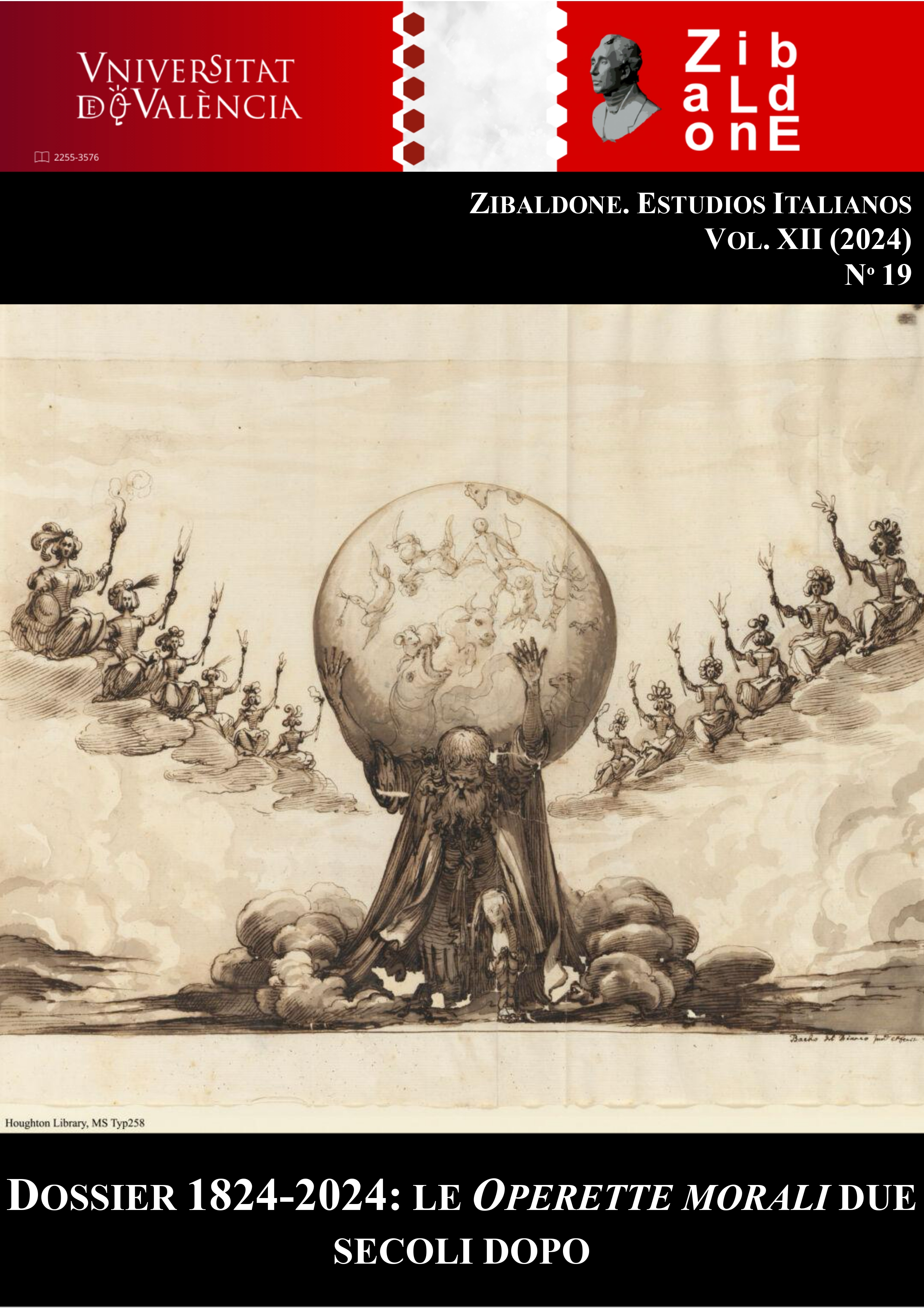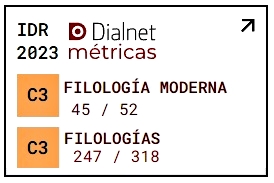Motivos prometeicos en las Operette Morali
Aproximación a partir de Blumenberg
Keywords:
Myth, Philosophy of History, Anthropology, Absolutism of Reality, Tragic Nihilism Abstract
Abstract
Blumenberg agrees with Leopardi on the non-anthropomorphic interpretation of the myth of Prometheus. Both reject the interpretation of Prometheus as a symbol of man struggling for self-emancipation. In the article we show that Leopardi was ahead of his time, for we will have to wait for the crisis of modern reason in the 20th century for an anthropology as realistic as that of the Italian poet to emerge. The absolutism of reality or indifference to nature and the unhappiness caused by the knowledge of human contingency are essential aspects of Blumenbergian anthropology that can already be found in the Operette morali. The article also argues that Leopardi's pessimism, shared with Georg Büchner, does not lead to reactionary thinking, but rather to an integral or consolationless humanism.
 Downloads
Downloads
Downloads
Published
How to Cite
-
Abstract9
-
PDF (Español)8
Issue
Section
License
![]()
This work is licensed under a Creative Commons Attribution 4.0 International License.
All contents of this electronic edition, except where otherwise noted, are distributed under a “Creative Commons Attribution 4.0 International License.” license (CC-by). You may read here the basic information and the legal text of the license. The indication of the license CC-by must be expressly stated in this way when necessary.
Self-archiving in repositories, personal webpages or similar, of any version other than the published by the Editor, is not allowed.






